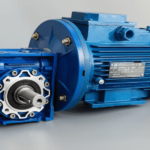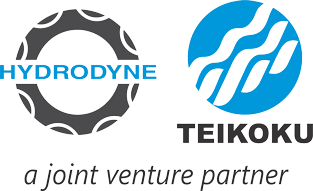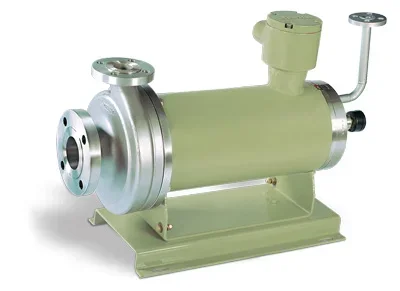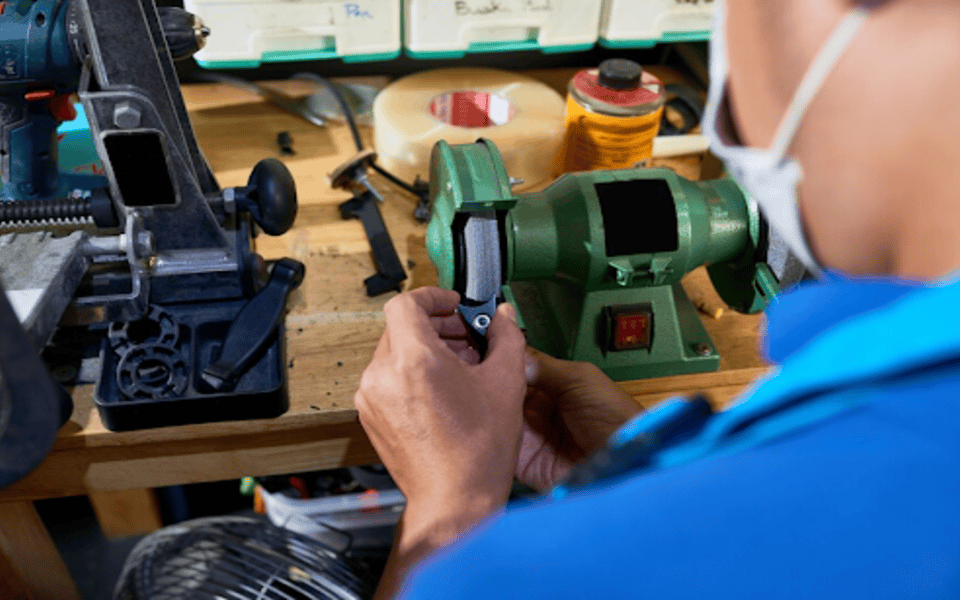
A Complete Guide to Ammonia Pump Maintenance
August 29, 2025
Hydrodyne Teikoku On Industrial Emission Control: Key Trends, Challenges & Solutions
September 25, 2025In many industries, pumps are the backbone of operations, yet they are often overlooked until something goes wrong. In sectors such as nuclear power, petrochemicals, pharmaceuticals, and oil & gas, even a small leak can result in safety hazards, environmental risks, and costly downtime.
At Hydrodyne Teikoku, we specialise in providing sealless canned motor pumps that tackle these challenges directly. With over three decades of experience, we have designed, manufactured, and supplied pumps that are safe, reliable, and efficient. Based in Mumbai, we have become a trusted partner for industries where precision and leak-free performance are essential.
In this article, we will explore what a sealless canned pump is, the key benefits it offers, the variety of pumps we provide, and the industries in which these pumps deliver the greatest value. Whether you are evaluating options for hazardous fluid handling, high-temperature processes, or critical industrial applications, understanding sealless canned pump technology is essential.
What Are Sealless Canned Pumps?
A sealless canned motor pump differs significantly from a conventional pump. Traditional pumps rely on mechanical seals around the shaft to prevent fluid leakage. Over time, these seals can wear out, causing leaks, requiring frequent maintenance, and increasing operational risk—particularly when dealing with hazardous, flammable, or corrosive fluids.
Sealless pumps, on the other hand, integrate the motor and pump into a single hermetically sealed housing. The pumped fluid itself lubricates and cools the motor, eliminating the need for mechanical seals entirely.
Benefits of Sealless Canned Pumps
Through our experience, we have found that these pumps offer several advantages:
- Leak-free operation: The hermetically sealed design completely prevents fluid leakage, ensuring safe operations even with hazardous substances.
- Low maintenance: With no mechanical seals or external lubrication requirements, operational interruptions are minimised.
- Compact design: Often up to 50% smaller than conventional pumps, saving valuable installation space.
- Safe handling of fluids: Ideal for flammable, corrosive, or temperature-sensitive liquids.
- Environmentally responsible: Reduced noise, vibration, and fugitive emissions support sustainability goals.
- Cost efficiency: Higher reliability and fewer breakdowns contribute to lower total life-cycle costs.
Why Sealless Pumps Are Becoming Indispensable
Modern industries are increasingly governed by stringent safety and environmental regulations. Leakages or contamination can not only cause financial loss but also regulatory penalties. Sealless canned pumps offer a practical solution to these challenges.
By removing seals, these pumps minimise operational risk while ensuring high reliability. They are particularly suitable for processes requiring vacuum or near-vacuum conditions, and for handling fluids that must not come into contact with air.
Our Range of Sealless Canned Pumps
We provide a comprehensive selection of sealless canned motor pumps, each tailored to specific applications. Understanding the type of pump needed for a particular process is critical for ensuring efficiency, safety, and durability.
Our Range of Sealless Canned Pumps
We offer a comprehensive range of sealless canned motor pumps, each carefully engineered to meet the demands of specific industrial processes. Selecting the right pump for a particular application is crucial to ensure efficiency, safety, and long-term reliability. Here’s an overview of the types of pumps we provide and the situations in which they excel.
Basic Internal Circulation Pumps
These pumps are ideal for standard industrial fluid circulation. With a simple yet robust design, they are often used in cooling systems, chemical circulation, and moderate-pressure applications. Their reliability and straightforward operation make them a practical choice for many general industrial processes.
Reverse Circulation Pumps
Reverse circulation pumps are designed to handle situations where fluid needs to flow back or be recirculated. They are particularly useful in heat exchangers, reactors, or any process that requires a uniform temperature distribution. Their design ensures consistent flow and prevents stagnation, improving process efficiency.
High-Temperature Pumps
For applications involving elevated temperatures, high-temperature pumps provide exceptional performance without compromising safety. They are commonly used in hot oil circulation, steam condensate transfer, and chemical reactions that require thermal stability. These pumps are built to endure extreme conditions while maintaining reliable operation.
Self-Priming Pumps
Self-priming pumps are capable of starting without any external priming, making them suitable for operations where suction lift is required. They are widely used for transferring liquids from storage tanks, sump drainage, and other scenarios where maintaining a primed system might be challenging.
Higher Heat-Resistant Pumps
Some processes demand operation under extremely high temperatures. Higher heat-resistant pumps are specifically engineered for such conditions, making them suitable for petrochemical and oil-refining applications. Their robust construction ensures durability even under continuous exposure to high thermal loads.
Multistage Pumps
When higher pressures are required, multistage pumps come into play. Equipped with multiple impellers, they generate the necessary pressure for demanding applications such as boiler feed systems, high-pressure chemical circulation, and long-distance fluid transfer. Their design allows them to maintain efficiency even under challenging conditions.
High-Melting Pumps
Certain fluids solidify at or near room temperature, requiring specialised handling. High-melting pumps are designed to transport molten chemicals, fats, waxes, and resins safely and efficiently. Their construction ensures consistent flow and prevents blockages, making them essential for industries dealing with materials that solidify easily.
Mechanical Seal Design Pumps
While sealless pumps eliminate many issues associated with mechanical seals, some processes may still require hybrid solutions. Mechanical seal design pumps incorporate seals where necessary, making them suitable for moderate-pressure chemical processes or specialised applications where conventional sealless technology may not be optimal.
Gas Seal Slurry Pumps
Finally, gas seal slurry pumps are tailored for particularly challenging applications, handling abrasive slurries and entrained gases. They are widely used in mining operations, chemical slurries, and petrochemical processes involving gas-laden liquids. Their robust design ensures both durability and reliable performance even under abrasive conditions.
Applications Across Industries
Sealless canned pumps have become indispensable in a variety of sectors due to their safety, efficiency, and environmental benefits:
- Nuclear power: Coolant circulation and handling radiation-sensitive fluids.
- Petrochemicals & oil & gas: Transfer of flammable and hazardous hydrocarbons.
- Pharmaceuticals: Safe handling of sensitive or toxic liquids without contamination.
- Food processing & refrigeration: Low-temperature, vacuum, or air-sensitive applications.
- Defence and railways: Reliable pumping for mission-critical systems.
Each application demands precise engineering, reliability, and adherence to international standards criteria that sealless canned pumps consistently meet.
Why Choose Hydrodyne Teikoku?
We bring over 30 years of expertise in sealless pump manufacturing, delivering solutions that meet global standards. The pumps are engineered for safety, reliability, and efficiency, complying with API, ANSI, ISO, and ATEX certifications.
Key differentiators include:
- Proven reliability: Pumps designed for critical applications where failure is not an option.
- Compact and efficient: Reduced installation space and energy consumption.
- Environmentally responsible: Low noise, vibration, and fugitive emissions.
- Comprehensive service: Spare parts, repairs, and technical guidance to maximise operational uptime.
Conclusion
Sealless canned pumps are transforming industries by providing safe, reliable, and environmentally responsible solutions. With a wide range of products designed for diverse applications, these pumps are ideal for operations where leakage, contamination, and downtime are unacceptable.
At Hydrodyne Teikoku, we combine decades of experience with engineering excellence to provide pumping solutions that keep critical operations running smoothly, safely, and efficiently.
For reliable, leak-free, and efficient pumping solutions, contact us today!
Frequently Asked Questions (FAQs)
1. How does a sealless canned pump differ from a conventional pump?
A sealless pump integrates the motor and pump in a hermetically sealed housing, eliminating shaft seals and the risk of fluid leakage.
2. Are these pumps suitable for high-temperature applications?
Yes. High-temperature and higher heat-resistant models are specifically designed for fluids above standard operational limits.
3. Can sealless pumps handle abrasive or slurry fluids?
Yes. Gas seal slurry pumps are engineered to manage abrasive and slurry-laden fluids safely.
4. Is operator training required for sealless pumps?
Minimal training is needed. These pumps are easier to operate since there are no mechanical seals or external lubrication requirements.
5. Which industries benefit most from sealless canned pumps?
Industries such as nuclear power, petrochemicals, oil & gas, pharmaceuticals, food processing, defence, and refrigeration benefit most.
6. How do sealless pumps support environmental compliance?
Leak-free operation minimises fugitive emissions and ensures safer workplaces, helping companies meet regulatory standards.
7. Are sealless pumps more expensive than conventional pumps?
While the initial cost is higher, the total cost of ownership is lower due to reduced maintenance, longer operational life, and minimal downtime.





